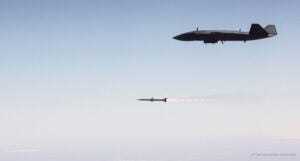The Department of Homeland Security (DHS) this week issued its final regulatory reform plan, which among other things seeks to formally establish an international trusted traveler program currently being tested by Customs and Border Protection to help expedite the entry of low-risk air travelers arriving in the United States. Maintaining the Global Entry program may save travelers on average nearly eight minutes of wait time per trip using self-serve kiosks rather than waiting in the regular immigration processing line, DHS…
Contract Updates
SNC Manufacturing LLC (Orocovis, Puerto Rico) – $15,857,625
SNC Manufacturing LLC,* Orocovis, Puerto Rico, has been awarded a maximum $15,857,625 firm-fixed-price, indefinite-delivery/indefinite-quantity contract for mechanics cold weather coveralls. This was a competitive acquisition with five responses received. This is a five-year contract with no option periods. The ordering…
Huntington Ingalls Inc. (Newport News, Virginia) – $9,434,758
Huntington Ingalls Inc., Newport News, Virginia, was awarded a $9,434,758 cost-plus-fixed-fee modification to a previously awarded contract (N00024-22-C-2105) to exercise options for planning and design yard activities for standard navy valves installed in commissioned nuclear-powered submarines, submersibles, and aircraft carriers.…
JRC Integrated Systems LLC (Washington, D.C.) – $10,708,589
JRC Integrated Systems LLC, Washington, D.C., is being awarded a $10,708,589 cost-plus-fixed-fee term contract (including option years) (N0003026C3031) for Trident II D5 Strategic Weapon System programs and Dreadnought programs. Tasks to be performed include operator and operational knowledge and expertise…
Lockheed Martin Corp. Missiles and Fire Control (Archbald, Pennsylvania) – $23,097,963
Lockheed Martin Corp., Missiles and Fire Control, Archbald, Pennsylvania, is awarded a $23,097,963 modification (P00007) to a previously awarded firm-fixed-price contract (N0001924C0004). This modification adds scope for the production and delivery of 4,002 Laser Guided Training Rounds Bomb Dummy Unit…










